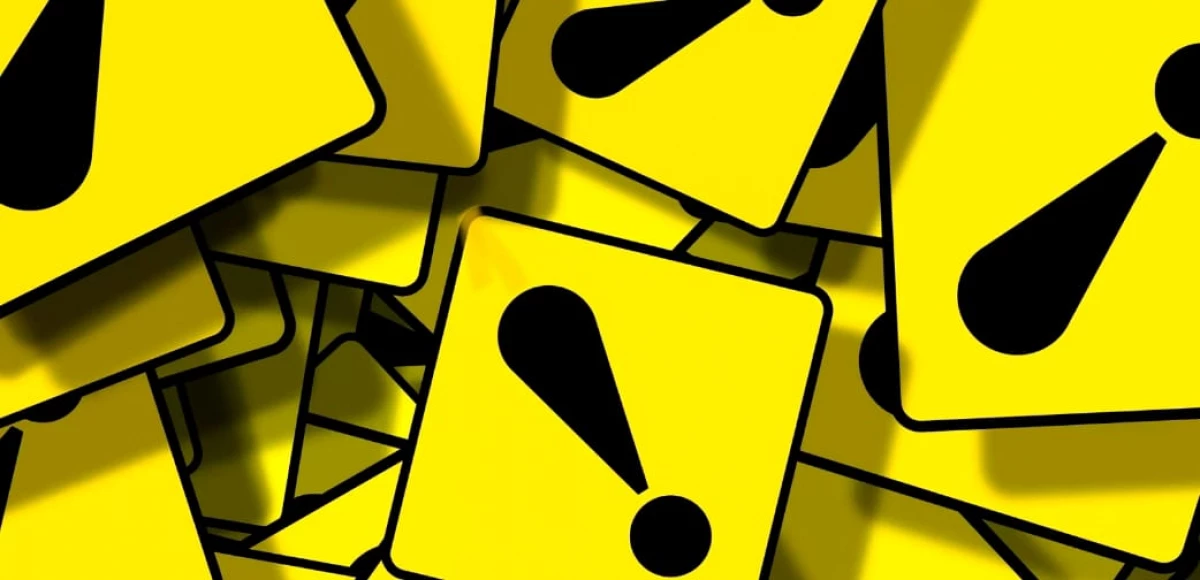The dark mystique of Friday the 13th: From ancient beliefs to modern fears

This phenomenon, rooted in ancient beliefs and modern anxieties, has become a focal point for various forms of media and public discourse.
Western superstition holds that Friday the 13th is an unlucky day—if not the unluckiest day in the Gregorian calendar.
Kenyans woke up to a series of tragic news reports this Friday morning, sparking chills and raising questions surrounding the truth behind the phenomenon.
In one incident in Kitui County, six schoolchildren died after being hit by a vehicle. Elsewhere, four people perished when a sewer line under excavation collapsed in the Shauri Moyo estate in Nairobi.
This followed an accident on the eve of Friday the 13th that claimed two lives at Kaburengu along the Eldoret-Malaba highway in Kakamega County.
Additionally, a middle-aged man living with a disability was burned beyond recognition in a fire incident in Kabutukei, Buuri Constituency, in Meru County.
In Laikipia County, officers at Magutu Police Post were met with tragedy when a police constable, identified as Andrew Miranyi, died by suicide after shooting himself in the chin. His firearm was recovered, and the body was taken to the Laikipia County Referral Hospital mortuary.
Several theories have emerged, seemingly supporting the Friday the 13th superstition. One traditional belief claims that people would be hanged on Fridays, after taking 13 steps to the gallows.
Others, like the 14th-century "Canterbury Tales" by Geoffrey Chaucer, suggest that Friday is generally an unlucky day.
Closer to home, the infamous "Kamata Kamata Fridays" — when arrests are made — are a nightmare for many, with some going to the High Court to file petitions seeking to block the police from arresting suspects on Fridays (after all, who wants to spend the weekend in police cells?).
The day's reputation for bad luck is so deeply ingrained that a specific term has been coined to describe it: paraskevidekatriaphobia — the fear of Friday the 13th.
According to The New York Times, this superstition is thought to have originated from the intertwining of two distinct fears: the number 13 and the day Friday.
Historically, the number 13 has been considered unlucky, with various cultures associating it with misfortune.
This belief is partly linked to the idea that 13 is irregular and disrupts the harmony of the number 12, which is often seen as a symbol of completeness (e.g., 12 months in a year, 12 hours on a clock).
The association with Friday further compounds the fear. In medieval Christian traditions, Friday was considered an ill-fated day, partly due to its association with the crucifixion of Jesus Christ.
As noted by The Guardian, these historical and religious associations contribute to the pervasive anxiety surrounding Friday the 13th.
In contemporary times, the superstition has been magnified worldwide. CNN highlights that the day has become a staple for horror films and sensational news stories, reinforcing the idea of Friday the 13th as a day fraught with misfortune.
The "Friday the 13th" film series, which began in the 1980s, capitalized on this fear, solidifying the date’s association with sinister events and supernatural terror.
Furthermore, The Washington Post reports that various businesses and institutions have even altered their schedules to avoid potential mishaps linked to the date. For example, some hospitals schedule fewer elective surgeries on Friday the 13th, reflecting a broader cultural wariness.
Psychologists often attribute the heightened anxiety around Friday the 13th to the placebo effect and confirmation bias.
According to Psychology Today, people who believe in superstition may be more likely to notice and remember negative events occurring on this day, thereby reinforcing their fears. This psychological feedback loop can contribute to a genuine sense of unease and heightened anxiety.
Despite these modern interpretations, it’s worth noting that the day also attracts a certain fascination and curiosity. Some view it as an opportunity to explore and challenge their fears in a controlled environment.
As Forbes points out, the day often sparks events and promotions designed to play on the superstition, from themed parties to special sales, reflecting a more playful engagement with the concept of misfortune.
Despite its reputation for bad luck, Friday the 13th’s negative connotations are unfounded when viewed through the lens of religious teachings, which emphasize faith and resilience over superstition.
For example, Christianity, which historically associated Friday with the crucifixion of Jesus, ultimately regards this day as one of profound redemption rather than misfortune, suggesting that the fear associated with Friday the 13th is more a product of cultural myths than spiritual truth.
Moreover, this superstition is not universal. In Greece and Spanish-speaking countries, Tuesday the 13th is deemed unlucky, while in Italy, Friday the 17th is the day associated with misfortune.
As some would argue, it may simply be an over-extension of imagination, projecting a connection between two otherwise unrelated things.
Want to send us a story? SMS to 25170 or WhatsApp 0743570000 or Submit on Citizen Digital or email wananchi@royalmedia.co.ke
Comments
No comments yet.



Leave a Comment